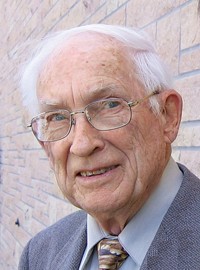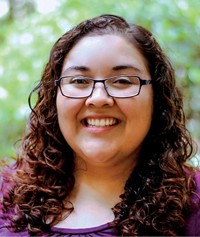Advertisement
Grab your lab coat. Let's get started
Welcome!
Welcome!
Create an account below to get 6 C&EN articles per month, receive newsletters and more - all free.
It seems this is your first time logging in online. Please enter the following information to continue.
As an ACS member you automatically get access to this site. All we need is few more details to create your reading experience.
Not you? Sign in with a different account.
Not you? Sign in with a different account.
ERROR 1
ERROR 1
ERROR 2
ERROR 2
ERROR 2
ERROR 2
ERROR 2
Password and Confirm password must match.
If you have an ACS member number, please enter it here so we can link this account to your membership. (optional)
ERROR 2
ACS values your privacy. By submitting your information, you are gaining access to C&EN and subscribing to our weekly newsletter. We use the information you provide to make your reading experience better, and we will never sell your data to third party members.
People
ACS Scholars Program Paved Way For Ron Walker’s Polymer Chemistry Career
Mentorship helped this chemist earn a Ph.D. that led to a job at Procter & Gamble
by Marc S. Reisch
June 29, 2015
| A version of this story appeared in
Volume 93, Issue 26
What Ron Walker liked most about the ACS Scholars Program is that it put him in touch with other students like him: “nerdy and in love with chemistry.” The program helped ease his way into a career in the science.
Walker’s dad is a truck driver. His mother is an assistant manager for a restaurant in the Louisiana town where Walker grew up. Neither has a college education, nor did their parents. But because of connections the ACS Scholars Program helped him make, Walker has a Ph.D. in chemistry from California Institute of Technology, and he is now a senior scientist working for consumer products giant Procter & Gamble in Cincinnati.
Walker was an ACS Scholar between 2002 and 2003 during his senior year at Southern University & Agricultural & Mechanical College, a historically black institution in Baton Rouge, La. By putting him in touch with other ACS scholars who were dedicated to and passionate about chemistry, the program helped confirm his own enthusiasm for the science and also provided monetary support.
Being a part of the ACS Scholars Program also fortified his urge to continue on to higher education and helped him get into graduate school, he says, noting that mention of the program on his applications was a plus.
But Walker had developed a curiosity about the world around him and a passion to learn long before he ever considered the existence of college or the benefits of an advanced degree. When they were children, he and his twin brother, Don, who is also a Caltech Ph.D. chemist and a former ACS Scholar, “were always taking things apart,” he says.
Walker also recalls embracing learning experiences that his parents and teachers enabled. Walker’s father took the boys on a trip to see the John C. Stennis Space Center in Mississippi to encourage their interest in the space shuttle. The gift of a microscope from his parents allowed the boys to examine blood close up when their father obligingly cut himself while shaving.
And when a teacher donated a set of encyclopedias to the boys, they used the books as source material for science experiments. One experiment, Walker remembers, called for mixing potassium permanganate with sugar and a drop of water to create fire. “It was chemistry and it was the coolest thing,” he says.
College mentors and other assistance programs combined with the ACS Scholars Program to help Walker advance in an academic setting he never knew existed when he was growing up.
The Department of Education’s Upward Bound program helped him prepare for college and what Walker thought would be a career in chemical engineering. But later, after spending three summers as a chemical engineering intern at the refinery operations of Texaco beginning just after he graduated from high school, Walker became more interested in chemistry.
During his sophomore year at Southern, a number of chemistry professors who had taken Walker and other like-minded students under their wings suggested the students consider going on to graduate school for a Ph.D. “I didn’t know what that involved,” he says. “I had to Google what Ph.D. meant.”
Between his junior and senior year of college, he landed a summer job in the lab of Nobel Prize-winning chemist Robert H. Grubbs at Caltech.
“The exposure to a school like Caltech at a young age was huge,” Walker says. Talking with Grubbs and others at Caltech, he learned that in science, “it’s not so much smarts that matter, but rather being persistent” and passionate in finding answers to vexing questions. “After I learned that lesson, I realized I could compete in research,” Walker says.
Meeting Grubbs and working in his lab had other benefits too. When it came time to apply for graduate school, Grubbs wrote letters of recommendation to all of the schools to which Walker applied, Walker says, including Caltech. Ultimately, he accepted an offer from Caltech working in Grubbs’s lab and completed his Ph.D. in synthetic polymer chemistry in 2008.
As he began his career, Walker says, he wanted a job in industry. He considered working at 3M and DuPont but in the end chose a job with Procter & Gamble. Now a senior scientist at the firm, he focuses on developing new hair care products. “I get to hang out with nerds and do research that makes life better for consumers and, at the same time, makes money for the company,” he says.
Working for a company means he has a “more sensible work schedule,” than he had in graduate school, he says. That’s important to Walker because it means he can devote time to his family, which includes his wife, a recreational therapist he met at Caltech; their two-year-old son; and their newborn daughter.
Now, Walker says, he can focus on his two principal passions: the people in his life and chemistry.
The ACS Scholars Program awards renewable scholarships of up to $5,000 each per academic year to underrepresented minority students who want to enter chemistry or chemistry-related fields. For more information, go to www.acs.org/success.






Join the conversation
Contact the reporter
Submit a Letter to the Editor for publication
Engage with us on Twitter